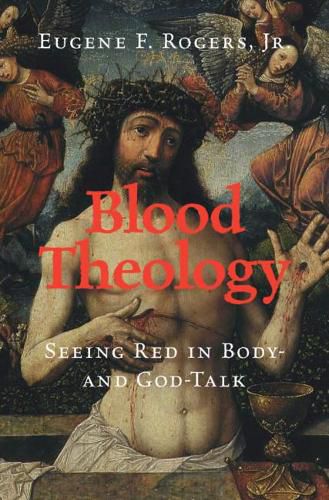Readings Newsletter
Become a Readings Member to make your shopping experience even easier.
Sign in or sign up for free!
You’re not far away from qualifying for FREE standard shipping within Australia
You’ve qualified for FREE standard shipping within Australia
The cart is loading…






The unsettling language of blood has been invoked throughout the history of Christianity. But until now there has been no truly sustained treatment of how Christians use blood to think with. Eugene F. Rogers Jr. discusses in his much-anticipated new book the sheer, surprising strangeness of Christian blood-talk, exploring the many and varied ways in which it offers a language where Christians cooperate, sacrifice, grow and disagree. He asks too how it is that blood-talk dominates when other explanations would do, and how blood seeps into places where it seems hardly to belong. Reaching beyond academic disputes, to consider how religious debates fuel civil ones, he shows that it is not only theologians or clergy who engage in blood-talk, but also lawmakers, judges, generals, doctors and voters at large. Religious arguments have significant societal consequences, Rogers contends; and for that reason secular citizens must do their best to understand them.
$9.00 standard shipping within Australia
FREE standard shipping within Australia for orders over $100.00
Express & International shipping calculated at checkout
The unsettling language of blood has been invoked throughout the history of Christianity. But until now there has been no truly sustained treatment of how Christians use blood to think with. Eugene F. Rogers Jr. discusses in his much-anticipated new book the sheer, surprising strangeness of Christian blood-talk, exploring the many and varied ways in which it offers a language where Christians cooperate, sacrifice, grow and disagree. He asks too how it is that blood-talk dominates when other explanations would do, and how blood seeps into places where it seems hardly to belong. Reaching beyond academic disputes, to consider how religious debates fuel civil ones, he shows that it is not only theologians or clergy who engage in blood-talk, but also lawmakers, judges, generals, doctors and voters at large. Religious arguments have significant societal consequences, Rogers contends; and for that reason secular citizens must do their best to understand them.